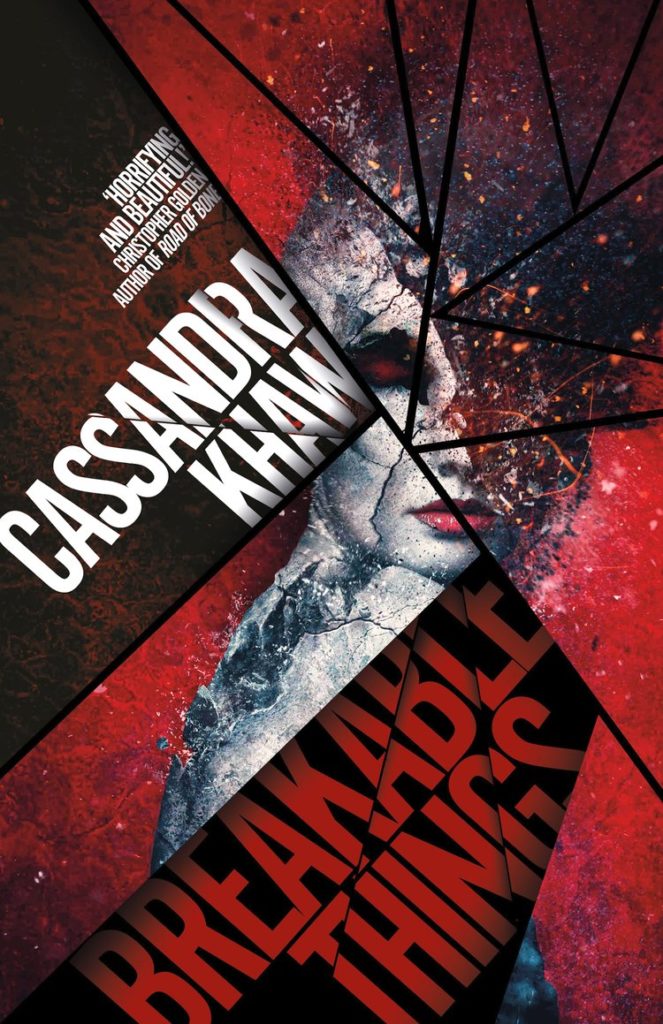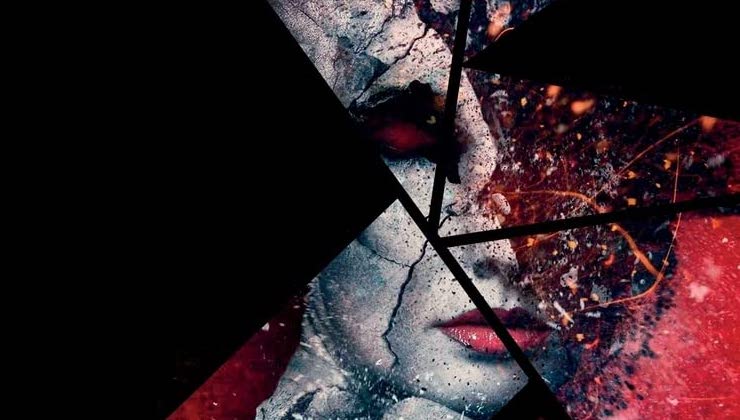Breakable Things, the new short story collection by Cassandra Khaw, is a book of modern myths–not in the sense that it updates older tales for the modern day, but in the way it remixes, changing the viewpoints of stories, and adding new details. It’s a book that doesn’t lose the lyricism or lush quality innate to older myths and folklore, but that pulls those themes into a more present context. Khaw doesn’t limit themselves to the grander topics of love, death, gods, and monsters, but also examines human connections, abuse, consent, boundaries, culture, and the underpinnings of our own social relationships. The result is a collection that examines, in all its myriad forms, what a story is, how it can change, and what role it can play in guiding and reflecting the society it belongs to. In this way, Khaw breaks down, examines, and rebuilds stories to show how powerful they are, adding modern elements and using them to tell much more complex morality tales than their original forms, rather than just claiming “stories have power” and leaving it at that.
While the focus of Breakable Things is mythology and stories, Khaw’s idea of “mythology” is much more elastic than one would think. There stories about harpies, fox spirits, and other fabulous creatures throughout, but the book integrates other forms of mythology as well. There are ghost stories told on a starship, a New Weird-style story about a toxic relationship between goddesses and their priestess, and a story retelling “The Roommate,” a classic urban legend, but instead using multiple permutations of the story so it’s about the bond between the two roommates, rather than the grisly scene at the end. It makes sense–the idea is creating a modern mythology and examining the place of stories in our world–so that would include all forms of the stories we tell each other, be they ghost stories around the campfire, scary urban legends, a myth from an older culture, or an odd almost-folktale about a war between peacocks and dogs.

Matching all of this is the style Khaw uses. Despite the dense language and lyrical approach to several of the stories, consistent with Khaw’s longer fiction, the overall tone is a lot quieter and more intimate. It creates the atmosphere of being told a story late at night, a feeling of quiet closeness even when the story is at its lushest, its angriest, its loudest. It’s a tremendous balancing act, as the stories can feel grand and epic, their messages shouted, their events sickeningly visceral, but at the same time, keep a closeness and intimacy to them. Breakable Things is a collection where a subdued story about a toxic marriage can blossom into a nightmare of dystopian horror, where the tale of a minor goddess who comes to those alone and forgotten will involve rage against the patriarchy directed at the Chinese pantheon and its calcified Celestial Bureaucracy, and where the story of a married couple dealing with the husband’s terminal illness involves a sickness that turns people into buildings. These are stories that can be heightened, strange, bombastic, and deeply personal sometimes all in the span of one page, tuned with wire-thin precision around the hushed but incredibly intense atmosphere of Khaw telling us their stories in the dark.
That intimacy can at times make Breakable Things a deeply upsetting book to read. Khaw’s modern mythos is unflinching with its explorations of emotion and society; whether in relationships, behavior, power structures, or even internally, Khaw dives deeply into all the myriad and possible ways people can harm and do harm in return. There’s a rawness underneath the lyricism and fantastic visuals, with stories depicting golden hearts, marble bones, and sumptuous feasts even as they detail the horrifying machinations of gods or the way a group of ignorant and manipulative nobles meet their end. Because the stories feel so close, because things are so intimate and so connected to the idea of myth, it makes it feel that much more wrenching, the themes explored that much more visceral.
Within that, there’s also a sense of some ambiguity throughout the book. In the opening story, “Don’t Turn On The Lights,” a young woman sics an urban legend boogeyman on her abusive roommate. Another story involves a web of intrigue that eventually leads to an interspecies war, and in a number of the stories, protagonists and antagonists alike are capable of their own monstrous acts. There’s a kind of passion that drives Khaw’s characters to do what they do, a passion that makes them capable of things like slaughtering an entire army, killing gods, and bargaining with all manner of supernatural creatures. While the more supernatural and monstrous characters in Breakable Things might do awful, unsettling things, there’s a stunning lack of malice to things that are just in a creature’s nature. Sometimes, there’s even a beauty to it, like the way Khaw describes ship graveyards full of nesting fish-people as “all eyes, all transparent radiance, their spines glowing gold.” It’s another way Khaw brings the mythology in line with the modern, allowing things to be terrifying or bizarre without having them be outright malevolent, allowing monsters and humans alike to be both victim and villain.
Stories can be a powerful thing, myths even more so. Breakable Things brings all of that power to bear. By giving their stories a more complex morality, wrestling with grander themes, and creating some stunningly disturbing visuals, Cassandra Khaw crafts a more modern mythology, one well-suited to take on the challenges of the present day. This book is an intimate, disturbing collection of modern mythology, and hopefully it’ll remain as tantalizing and timeless as the stories that inspired it.



